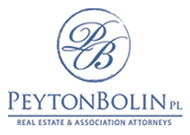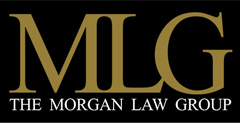
Summer School 2019
Legal Potholes—Avoid These
Published June 2019
Editor’s Note: FLCAJ asked several of our legal experts to provide important counsel to community associations on steps they can take to avoid a tumble in to legal potholes.
 Number of Directors
Number of Directors
Keith Backer, Esq.
The Condominium Act, while not expressly stating a default number of directors when the bylaws are silent, has been interpreted by the DBPR to provide that the number of directors shall be five. In those instances where a condominium’s bylaws provide for the number to be a range without specifying how to determine the number, the DBPR has ruled that the number should also default to five. Where the bylaws state a specific number for an initial board and do not say how the board may be increased after turnover, it has been concluded that the initial board size remains unless the bylaws are amended.
For more information on Backer Aboud Poliakoff & Foelster, call (800) 251-3562 or visit www.bapflaw.com.
 Maintain Your Unit in Good Condition
Maintain Your Unit in Good Condition
By Eric Glazer, Esq.
Summer is here. But, just because you leave your Florida condominium for a few months does not mean that your responsibility to maintain your unit stops once you hit the Georgia border.
Every declaration of condominium has a general clause that requires the owner of the unit to maintain his or her unit in good condition. In fact, arbitration decisions have held that “where an owner does not reside in the unit, it is incumbent on the owner to routinely and periodically examine and inspect the unit to ensure the absence of leaks and conditions that would otherwise lead to damage to the building and its occupants. In recognition of the fact that where multiple owners occupy a single building, a problem that develops in one unit may well affect other units and the common element components of the building.” See: Los Prados Condominium Association v. Lemley Case No. 03-6092 May 25, 2004, Arbitrator, Scheuerman.
For more information on Glazer & Sachs, call (954) 983-1112 or visit www.condo-laws.com.
 Transfer Restrictions
Transfer Restrictions
By Jonathan S. Goldstein
Sale and leasing restrictions in governing documents must not be taken for granted in terms of scope or implementation. There are various potential risks and liabilities if not drafted properly and implemented consistently with the declaration and applicable law. While they provide an important opportunity to protect residents and property if carefully tailored, they create a risk of arbitrary or discriminatory enforcement if they are too vague or can be applied too expansively (without a right of first refusal). Boards should regularly evaluate the practices and procedures relating to approval processes, comply with local ordinances, ensure that practices adhere to the Declaration, and avoid applying criteria that risk having a “disparate impact” on minorities.
For more information on Haber Law, visit www.haber.law.
 Disputes Over Boat Slips and Docks
Disputes Over Boat Slips and Docks
By Molly Maggiano, Esq.
Boat slips and docks are desired amenities in many communities but are frequently the source of disputes amongst owners and associations. As such, it is important for all parties to be cognizant that ownership, use, and transfer rights in such facilities may be impacted by a variety of factors, including governing documents, submerged land leases, and
riparian rights.
For more information on Henderson, Franklin, Starnes & Holt, call (239) 344-1213, email molly.maggiano@henlaw.com, or visit www.henlaw.com.
 Don’t Sign the Contract
Don’t Sign the Contract
By Jane Bolin, Esq.
Don’t sign the contract without understanding the terms! Too often board members sign a contract and don’t seek legal advice in advance. The risk outweighs any reward here. The best-spent legal budget is legal advice before, not after, a problem.
For more information on PeytonBolin PL, call (877) 739-8662 or visit peytonbolin.com.
 Avoiding Fraud and Embezzlement
Avoiding Fraud and Embezzlement
By Laura Manning-Hudson
Individuals who are entrusted by an association with the management of its finances sometimes take advantage of their positions to conceal their theft. To avoid becoming a victim, associations must institute safeguards. This includes a monthly review of all bank and credit card statements by at least two people. Checks should be signed by at least two people, and backup for each check should be reviewed before signing. There should also be an annual audit by experienced and reputable accountants to provide a careful review and independent certification of the validity of all financial records.
For more information on Siegfried Rivera, visit www.siegfriedrivera.com or www.FloridaHOALawyerBlog.com or call (305) 442-3334.
 Important Proof of Loss Document
Important Proof of Loss Document
By Daniel Frank Lopez, Esq.
A Proof of Loss (or POL) is a document completed by the policyholder after a property damage loss. Failure to fill out a POL accurately and within the deadline set by the carrier (typically 60 days after the request is made) can lead to underpayment, delay, or denial of your claim. All information contained in the POL must be based on supporting evidence.
Do not guess as to the value on the POL. Home-owners should have their own professionals who do not work for the carrier to gather evidence of damage. An attorney or a public adjuster can prepare, estimate, and negotiate your insurance claim as well as help complete a POL, thus avoiding any potholes, which may appear in the homeowner’s road to recovery.
For more information on The Morgan Law Group, call (888) 904-CLAIM or visit www.policyadvocate.com.




